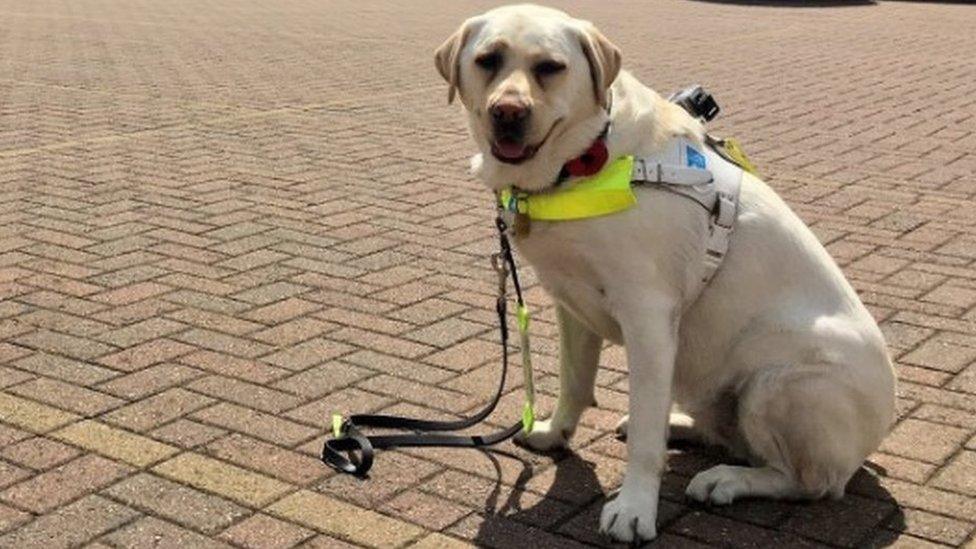Vision loss headset made in Belfast opens window on child's world
- Published
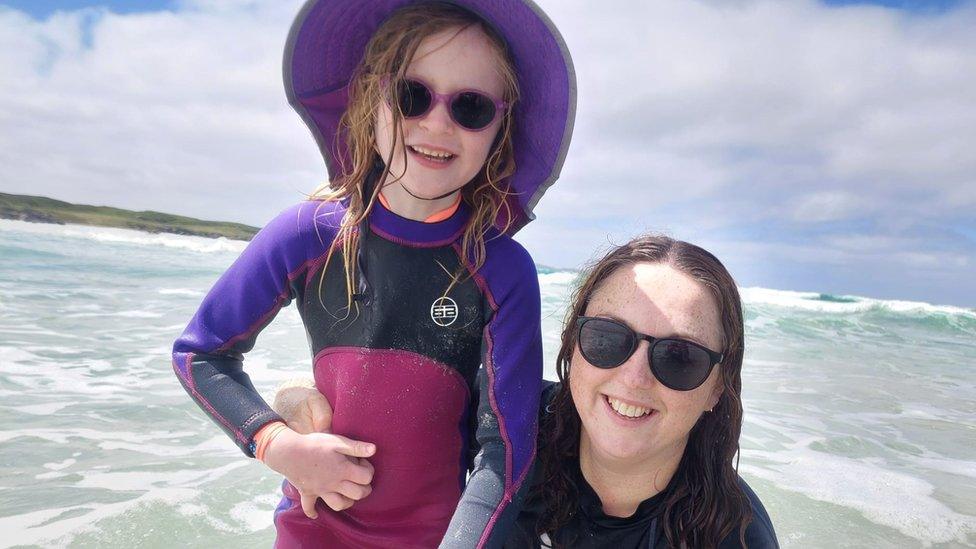
Caroline Henderson now has a better understanding of her daughter Aibhilin's life
A woman who used virtual reality to understand her child's visual impairment says seeing the world through her daughter's eyes is "mind blowing".
Caroline Henderson's daughter Aibhilin, seven, was diagnosed with ocular albinism and nystagmus at 11 weeks old.
When Caroline and her husband Carl used a VR headset developed in Belfast, they found it "overwhelming".
It showed them just how frustrating her visual impairment was for Aibhilin.
"It was very overwhelming and it made us realise just how frustrating and how her world is very different to the way her dad and I see the world," says Caroline.
"It made perfect sense why the playground and classroom can be really frustrating and she doesn't read non-verbal social cues."
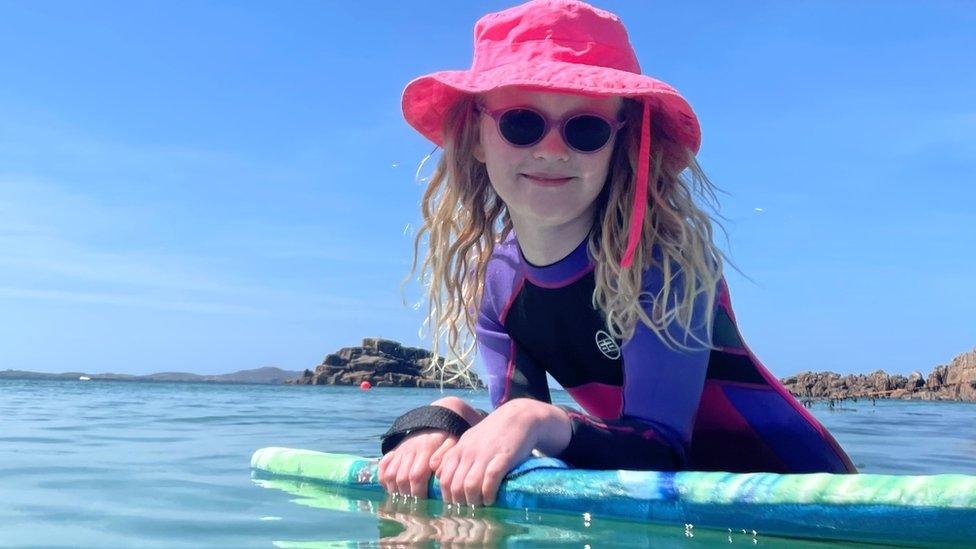
Aibhilin Henderson was diagnosed with ocular albinism and nystagmus weeks after she was born
The software was developed in Belfast by Sara McCracken, whose twins were born at 29 weeks and registered blind at just six months.
Peter and Connie have oculocutaneous albinism and nystagmus, which means their eyes move involuntarily from side to side and they have reduced vision.
Ms McCracken wanted the wider world to understand how people with visual impairments, like her twins, see every day.
The system recreates more than 30 eye conditions in a variety of settings such as a school classroom, a busy street, bus or play park.
The team involved include experts from the Royal Victoria Hospital in Belfast and Ulster University.
"We've developed software that can be manipulated to create lots of different eye conditions," says Ms McCracken.
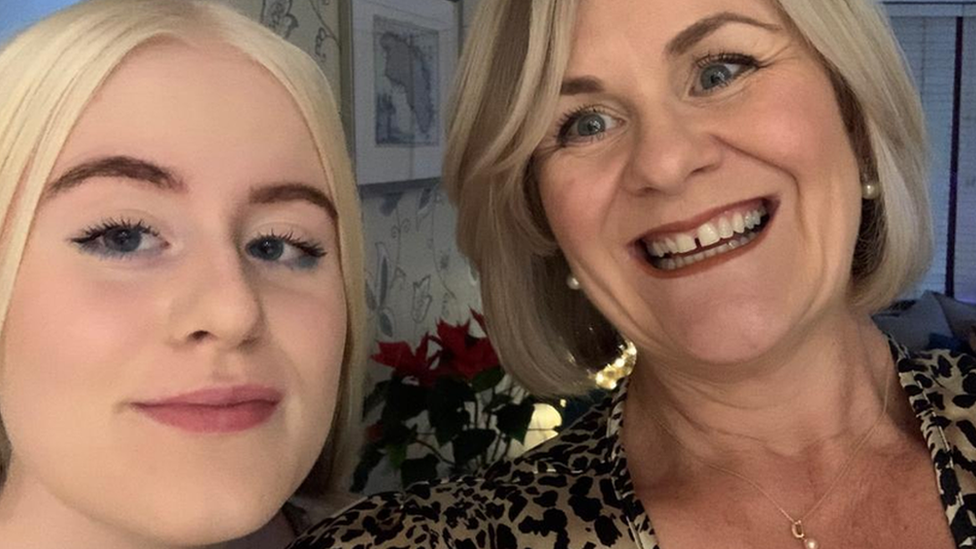
Sara McCracken (right) says the software was inspired by with her daughter Connie (left) and her twin brother
"It's a very effective way of giving people who don't have clinical information or knowledge a really immersive impression of visual impairment.
"It's very effective for parents to be able to understand and change the way they advocate for their child but also for schools to understand the impact it has on children in the classroom or playground and, beyond that, for adults who have a visual impairment too."
For Caroline, the Empatheyes software has made her more understanding of Aibhilin's behaviour.
She says children with visual impairments often get very tired by the end of the week, their vision has deteriorated, and the way they are parented or taught needs to be adapted.
"I think sometimes the children with visual impairment, you're seeing the tip of the iceberg and not understanding what's underneath and driving that behaviour," she explains.
"Thursdays and Fridays are Aibhilin's most challenging days at school.
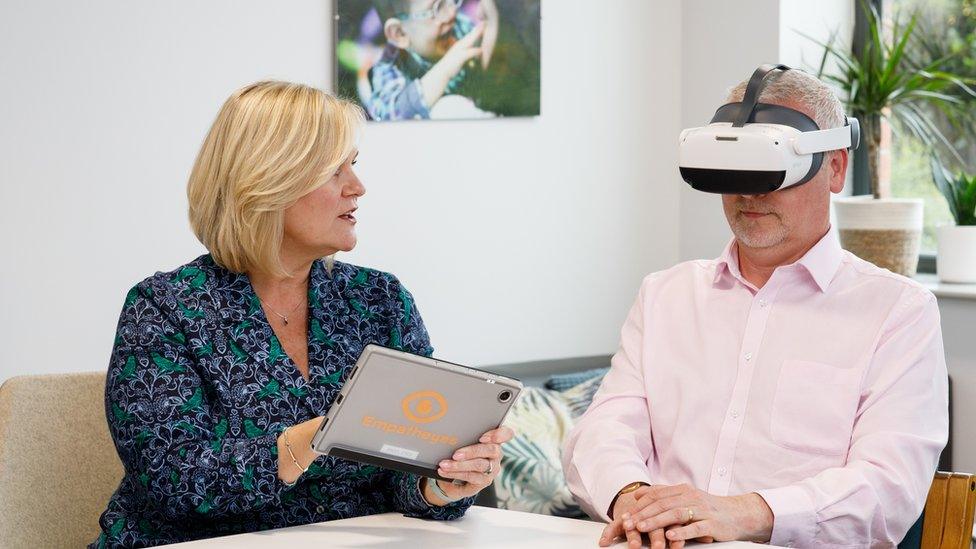
Sara McCracken has worked with Stephen Ellis from the Innovation Factory in west Belfast to develop Empatheyes
"But now, understanding her nystagmus and the way that she sees the world, and she's tired because she's held it together all week.
"I think without doing the VR technology we wouldn't understand the difference between the Aibhilin we have on a Monday and the Aibhilin we have on a Friday."
Empatheyes works as a social enterprise. Its team is based at the Innovation Factory in west Belfast.
Its software is being used in schools, healthcare settings and offices across the UK and Ireland.
Next month it will be shown to an international audience at the Vision 2023 conference in Denver.
"The United States is a massive market and they don't have anything like it there," says Ms McCracken.
"There's a lot of excitement already from professionals over there to see this VR system that we created right here in Northern Ireland."
- Published3 July 2018
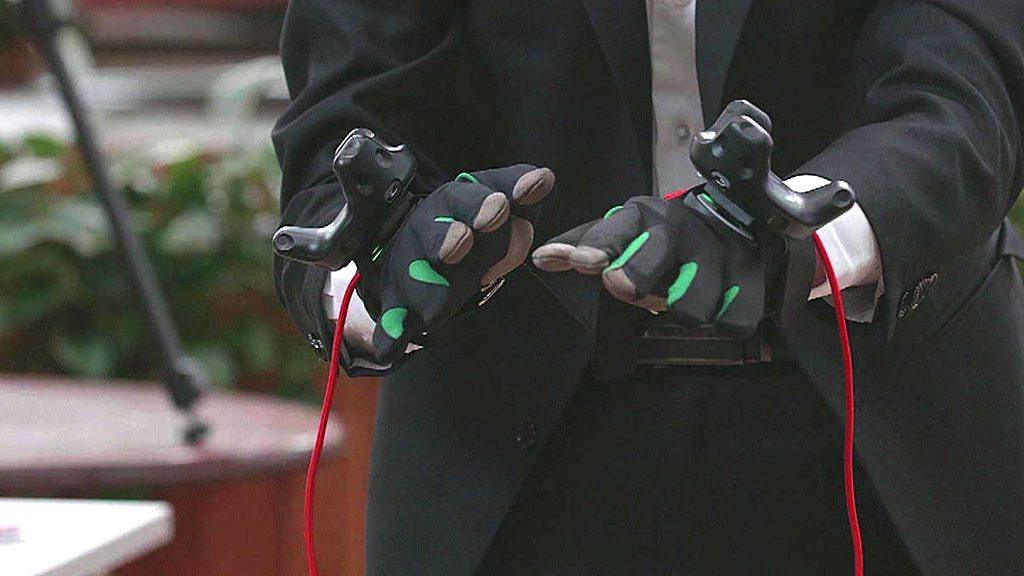
- Published5 January 2018
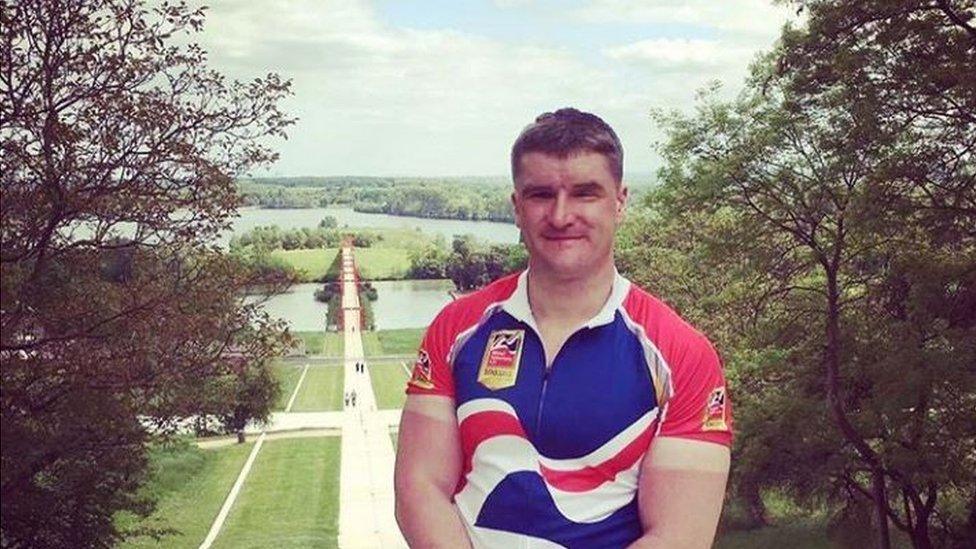
- Published4 January 2017
